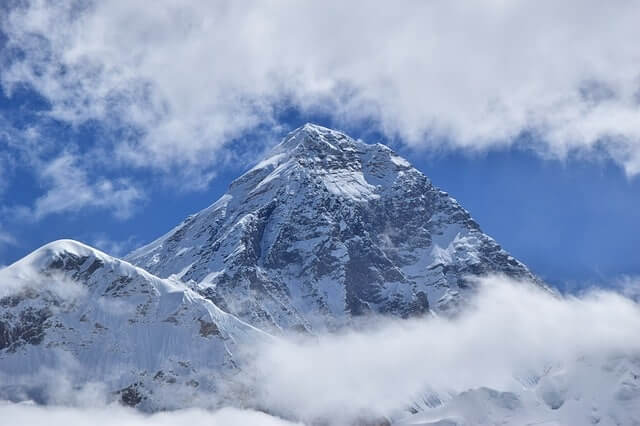In a bid to save Mount Everest from trash, Nepal just concluded a month-long cleaning campaign where over 10,000 kg of rubbish was collected from the region.
The mega clean-up campaign coordinated by government and non-government agencies by mobilizing a dedicated Sherpa team from the base camp to four higher camps, collected waste and also managed to recover and remove the dead bodies of four climbers from the roof of the world.

And instead of sending the solid waste to dump in the landfill site near Kathmandu, the items were segregated, processed and recycled as raw materials for various products.
“We segregated the collected materials in different categories like plastic, glass, iron, aluminium and textile. Among 10 tonnes of waste received, two tonnes have been recycled while the remaining eight were soil mixed with wrappers and semi-burned items, which could not be recycled,” said Nabin Bikash Maharjan, the head of Blue Waste to Value.
Since 2017, more than 50 people have been involved with Kathmandu-based Blue Waste to Value, which is a social enterprise dedicated to creating value from waste.

Besides recycling the mountain waste, Maharjan’s team is also working with municipalities, hospitals, hotels and different offices to maximize value from waste by recycling and reducing the amount of waste sent to landfills and by creating green jobs.
To make the Everest cleanup campaign more effective, the company suggested the authorities set up an initial processing units in the mountain area itself, so that waste can be segregated immediately and managed easily.
Though the company does not recycle the materials itself, it collaborates with another firm called Moware Designs – to create up-cycled glass products and to sell them online.

These products, which range from 350 Nepalese rupees to 2,000 Nepalese rupees ($3 to $18), are bacteria free as they are sterilized. The same glass items have also been a means of livelihood for many local women who shape the trash into trendy designs.
According to Nepal’s regulation, every foreign climber needs to pay $11,000 as royalty while a Nepali climber has to pay $710 to scale Everest. Besides this, the government collects garbage deposits from the climbers with a provision of refund after they bring back at least 8 kg of garbage. High altitude guides claimed that piles of trash are still found on the mountain, causing an adverse impact on health and the environment.
The Nepal Mountaineering Association said the government should come up with a new policy to have a separate fund which can be used to continue the cleanliness campaign to make the mountaineering industry more sustainable.
IANS
Nepal strives to convert Everest trash into treasure

Reading Time: 2 minutes



